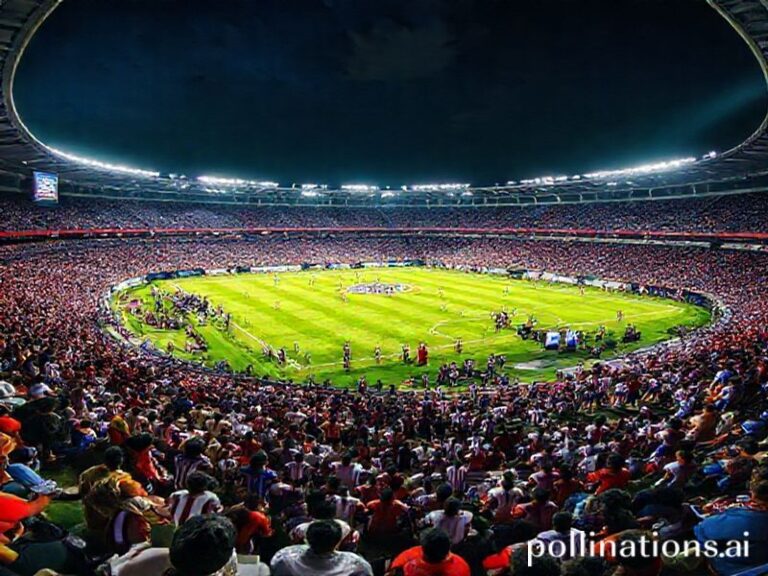Bruno Fernandes: The Last Romantic Tilting at Glazer-Era Windmills
Bruno Fernandes: The Last Romantic in a World of Spreadsheet Football
Somewhere between the ruins of Old Trafford’s fading empire and the fluorescent glow of Premier League accounting departments, Bruno Fernandes has become the last man alive who still believes football is meant to be played with a bleeding heart rather than a balance sheet. While Manchester United’s quarterly earnings calls read like war-crime indictments and the Glazers treat the club the way hedge funds treat dying newspapers—strip the copper pipes, flip the corpse—Fernandes keeps sprinting 40 yards to press a goalkeeper he’ll never catch, like a medieval knight tilting at windmills that happen to wear Nike gloves.
It’s almost touching, really, this Portuguese midfielder who treats every misplaced pass as a personal betrayal against the concept of effort itself. In a sport increasingly run by venture-capital spreadsheets and Gulf-state geopolitics, Fernandes plays as though FFP violations are a moral failing and VAR delays are an insult to human dignity. He’s the kind of tragic figure Shakespeare would have written if the Globe Theatre had a £375,000/week wage structure.
Globally, Fernandes has become a Rorschach test for how nations cope with late-capitalist decline. In Lisbon, they see him as proof that saudade can be weaponized into through-balls. In Manchester, he’s either the Messiah or the symptom—depending on whether the local pub serves IPAs or broken dreams. In Riyadh’s air-conditioned boardrooms, he’s a cautionary tale: here’s what happens when you let a player care more about angles than assets. Meanwhile, in the United States—a country that still calls the sport “soccer” with the confidence of a toddler naming dinosaurs—Fernandes is the reason your nephew’s youth coach now screams “Play like Bruno!” at 8-year-olds who can’t tie their own boots but can already identify five shirt-sponsorship tiers.
The numbers are absurd, of course. Since arriving in January 2020, Fernandes has created more chances than most governments create scandals. His assist tally rivals the GDP of small island nations. Yet United have won roughly the same number of major trophies in that span as the Vatican City national team, which raises the uncomfortable question: what if excellence is just another commodity that can be monetized into mediocrity?
And there’s the dark punchline. Fernandes’ greatest crime isn’t losing; it’s caring too loudly in a sport that’s learned to monetize indifference. When he screams at teammates for jogging back on defense, he’s essentially yelling at the entire 21st-century economy: “Hustle culture is fine, but maybe hustle toward something other than shareholder value?” The man celebrates goals like he’s personally solved inflation, then looks genuinely surprised when the next kickoff reveals the same broken world.
Still, international observers keep watching, because Fernandes represents the final, flickering belief that individual agency matters in systems designed to crush it. South Korean fans stream his games at 4 a.m. because his urgency feels like a proxy protest against their own grind culture. Nigerian Twitter debates whether his engine could solve national-grid issues. Even the Swiss—neutral since 1815—admit he makes them feel something, which in Switzerland counts as a revolutionary act.
As United circle another managerial drain and the Super League zombies re-animate, Fernandes keeps producing those absurd no-look passes that split defenses like bad philosophy. He’s Sisyphus if Sisyphus had a sponsorship deal with Adidas and a minor in sporting existentialism. The boulder rolls back down every June, but damn if he doesn’t sprint after it again each August, shoelaces flapping like surrender flags no one taught him how to wave.
In the end, Bruno Fernandes is what happens when talent refuses to read the room. He’s a living rebuttal to the idea that modern footballers must choose between being brands or being human. And if that’s not worth watching in a world where everything else feels pre-written by offshore shell companies, then we might as well cancel the sport entirely and replace it with NFTs of corner flags.
At least until Fernandes nutmegs reality again.







